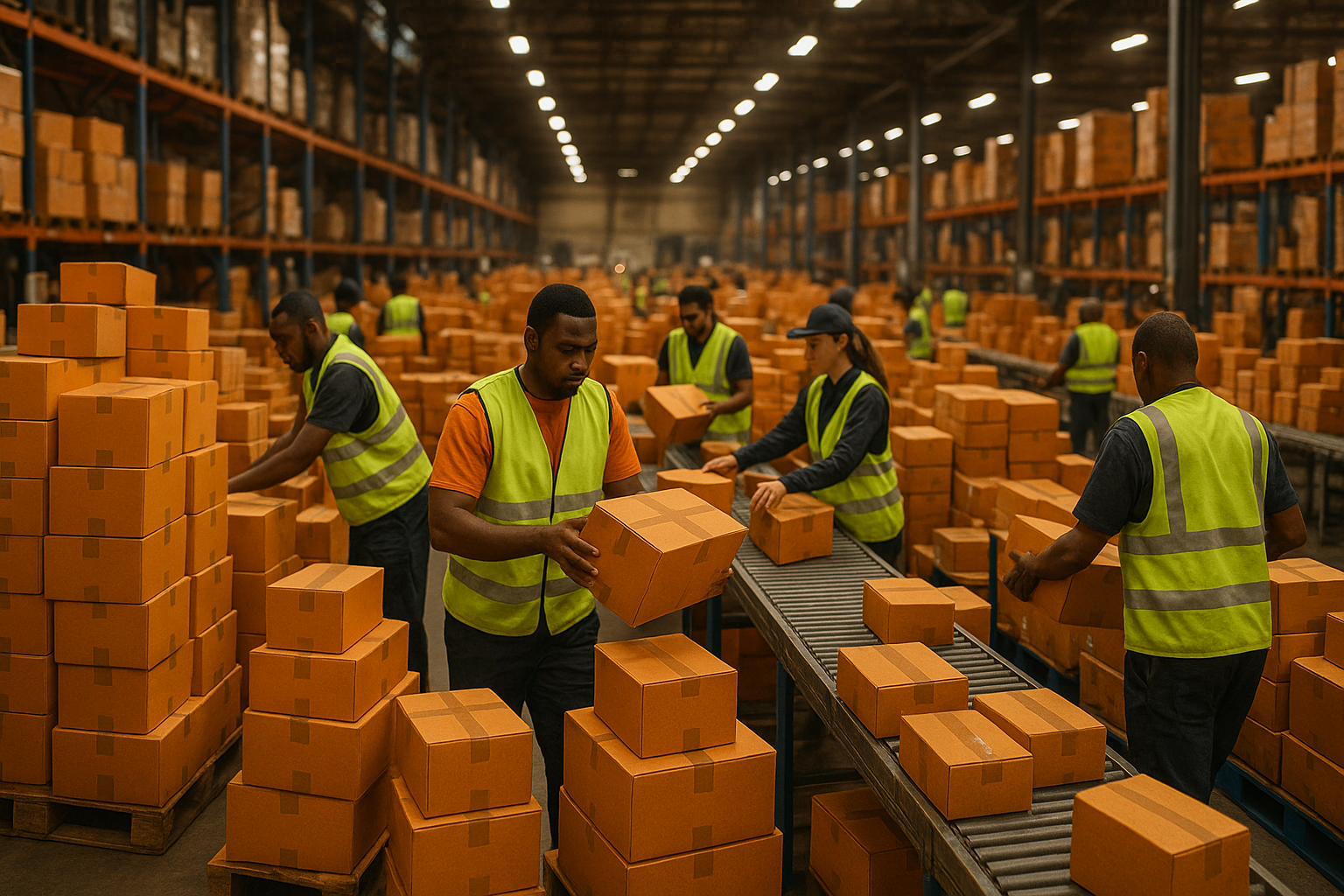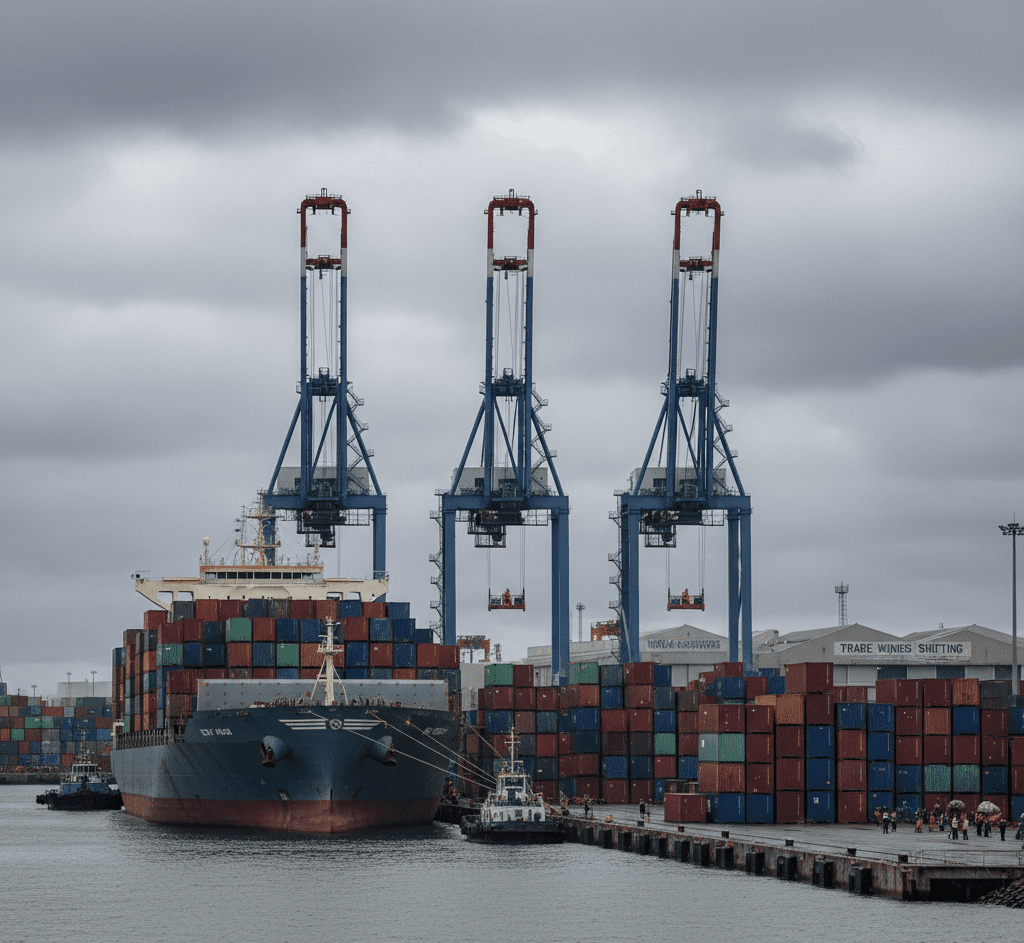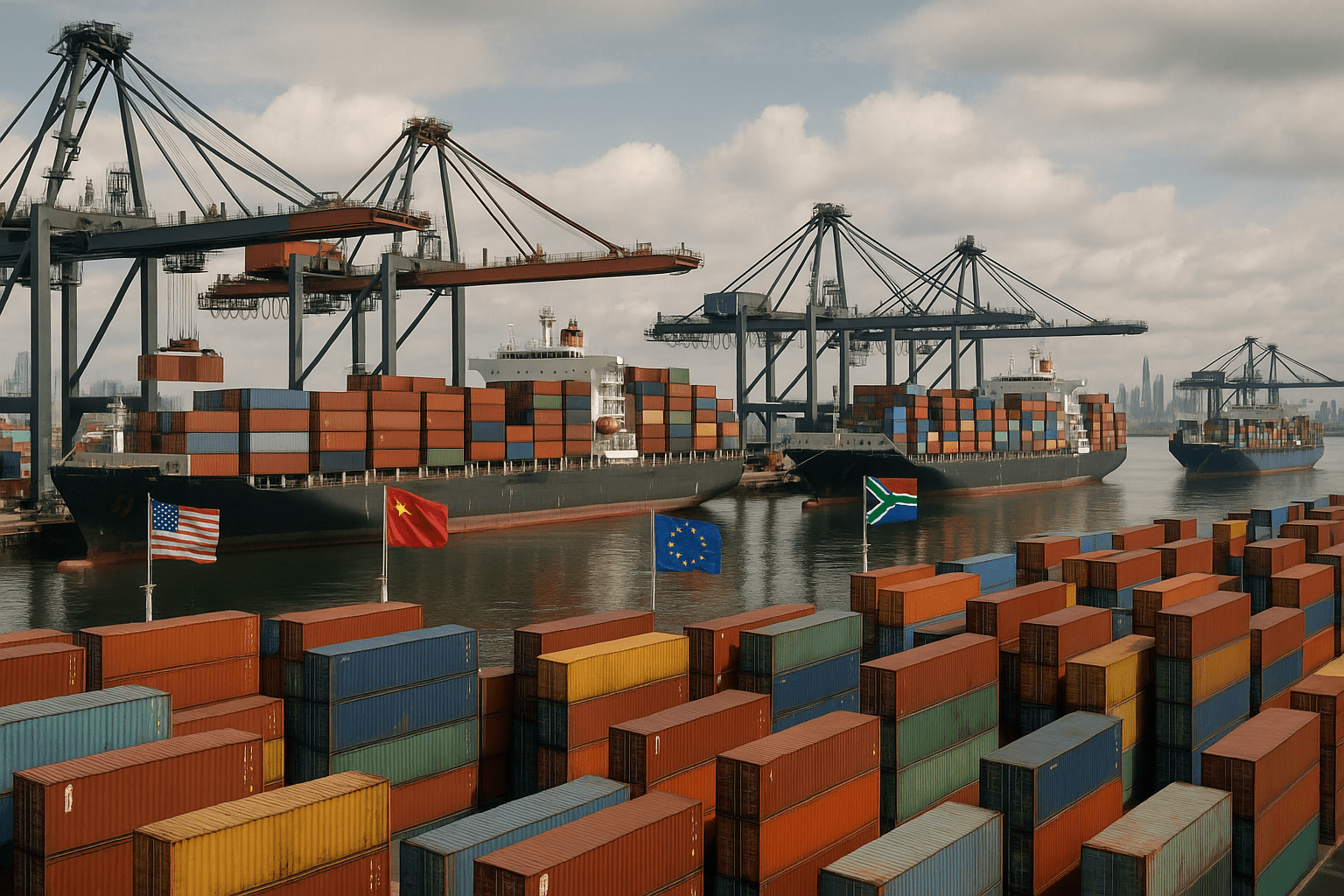Temu Launches SA Warehouse – Faster Delivery

Temu Launches SA Warehouse – Faster Delivery
Chinese e-commerce giant Temu has officially launched its first warehouse in South Africa, and frankly, it’s about time. After months of South African consumers enduring weeks-long delivery times from China, this strategic move promises to shake up our local e-commerce scene in ways that Takealot probably isn’t too thrilled about.
The warehouse launch represents Temu’s most significant infrastructure bet since they quietly entered the South African market in January 2024. For anyone who’s ever ordered a phone case from China and forgotten about it by the time it arrived three weeks later, this could be a game-changer. We’re talking about potential one-day delivery for popular items.
With South Africa’s e-commerce market hitting approximately R53 billion in 2023, Temu’s local warehouse isn’t just about faster delivery. It’s a clear signal that they’re serious about grabbing a meaningful slice of our growing digital commerce pie. This infrastructure play suggests they’re not just testing the waters anymore – they’re diving in headfirst.
Temu Warehouse South Africa: The Big Announcement
So what exactly has Temu done here? They’ve established their first major local infrastructure since launching in SA 18 months ago, marking a significant departure from their previous model of shipping everything directly from China. It’s the kind of move that makes you wonder why it took them so long to figure out that South Africans, like everyone else, prefer not to wait three weeks for their online purchases.
The warehouse development follows Temu’s global playbook, with similar facilities already operational in the US, Canada, Australia, Japan, the UK, Germany, and France. This puts South Africa in interesting company and positions us as a key strategic market for their African expansion plans. Not bad for a continent that many international e-commerce players have historically overlooked.
Here’s where it gets interesting from a business perspective. Temu doesn’t actually own warehouses – they work with third-party logistics providers to establish local fulfillment centers. It’s a smart approach that allows rapid market entry while keeping capital investment and operational headaches to a minimum. The facility will stock the usual suspects: electronics, home appliances, fashion items, and beauty products, with priority given to fast-moving inventory based on what South African consumers actually buy.
The timeline tells a story too. The warehouse became operational in July 2024, roughly 18 months after Temu’s initial market entry. That’s either careful planning or a response to disappointing delivery performance – probably both. Either way, it suggests they’re now committed to making this work long-term.
What This Means for South African Shoppers
The most obvious benefit is speed. Temu now delivers in 1 day in SA with local warehouse for items stocked locally, compared to the previous 7-21 day international shipping timeline that had consumers planning purchases like they were stocking up for a siege. This improvement tackles one of the biggest barriers that prevented South African consumers from embracing Chinese e-commerce platforms in the first place.
But it’s not just about speed – it’s about the entire customer experience. Returns processing, which previously involved shipping items back to China and waiting for refunds, can now be handled locally within their 90-day return policy. Shipping costs for warehouse items should drop significantly with the elimination of international shipping fees, and customers will finally have accurate stock levels and delivery estimates instead of the previous guesswork.
The local warehouse will maintain inventory of approximately 10,000 SKUs initially, focusing on high-demand categories. Pricing should remain competitive with international offerings while potentially offering slight reductions due to eliminated international shipping costs. More importantly, South African consumers can expect consistent product availability for popular items, reducing the frustration of lengthy restocking periods that previously characterized international orders.
Customer service will also improve with local support during business hours, though anyone who’s dealt with Chinese platform customer service will tell you that’s a pretty low bar to clear.
Competitive Impact on Local E-commerce Giants
Let’s talk about the elephant in the room – Takealot. South Africa’s largest e-commerce platform has maintained market leadership through superior logistics and local warehousing. Temu’s infrastructure investment directly challenges this competitive advantage, particularly in electronics and general merchandise categories where price sensitivity runs high.
Takealot’s average delivery time of 2-3 days in major metros suddenly doesn’t look quite as impressive against Temu’s one-day delivery promise. For price-sensitive consumers who don’t mind trading brand familiarity for speed and value, this could be a compelling proposition. The question is whether Takealot’s customer service, return policies, and brand trust can justify the premium.
But it’s not just Takealot feeling the heat. Established retailers like Pick n Pay, Woolworths, and Clicks face increased pressure as Temu’s local presence makes Chinese products more accessible. The convenience factor of next-day delivery for household items and electronics could significantly impact traditional retail foot traffic, especially for non-essential purchases.
Industry analysts predict Temu could capture 3-5% of South Africa’s e-commerce market within the first year of warehouse operations. That might not sound like much, but we’re talking about a market worth over R50 billion. This growth would primarily come from market expansion rather than direct competition, as Temu targets different consumer segments than premium local retailers.
Business Implications for SA SMBs
Small and medium businesses should pay attention here because this development creates both opportunities and threats. On the opportunity side, Temu’s infrastructure investment opens doors for local service providers in packaging, quality control, customer service, and last-mile delivery. Smart SMBs can leverage Temu’s platform for logistics partnerships and warehousing solutions.
The threat side is more complex. South African importers and distributors who previously served as intermediaries for Chinese products face potential disruption as Temu’s direct-to-consumer model bypasses traditional supply chains. These businesses need to adapt by focusing on unique value propositions and specialized services that Temu cannot easily replicate.
The smart money is on SMBs that pivot toward niche specialization, emphasizing products and services that require local expertise or personal touch. Customer relationship focus becomes crucial – something that massive platforms struggle to replicate. Partnership opportunities with Temu for complementary services could also provide growth avenues, while value-added services like installation, maintenance, and specialized support create defensible market positions.
Technical Infrastructure and Delivery Improvements
The technical side of this operation is where things get interesting. Temu’s warehouse integrates with South Africa’s existing courier networks while maintaining quality control standards consistent with their international operations. The facility uses automated sorting systems and real-time inventory management to ensure efficient order processing, with integration across local courier services like The Courier Guy and Fastway enabling nationwide delivery coverage.
The technology stack includes real-time GPS-enabled delivery tracking, predictive analytics for demand forecasting and inventory optimization, seamless mobile app integration for ordering and tracking, and AI-powered recommendation engines for personalized shopping experiences. It’s the kind of infrastructure that would have cost millions to develop independently but becomes accessible through Temu’s global platform.
Quality assurance gets a significant boost with local warehousing enabling enhanced quality control through pre-delivery inspections and easier returns processing. This addresses historical concerns about product quality and authenticity that have affected consumer confidence in Chinese e-commerce platforms.
Future Outlook and Market Predictions
The warehouse launch signals deeper commitment to local operations and probably more expansion to come. Industry experts anticipate potential expansion to Cape Town and Durban within the next 18 months, creating a comprehensive national distribution network. That would put pressure on regional e-commerce players and potentially accelerate the consolidation of South Africa’s fragmented online retail market.
This represents the beginning of a broader transformation in South African e-commerce. As international platforms invest in local infrastructure, consumers benefit from improved service while local businesses must adapt to intensified competition. The economic impact extends beyond immediate employment to include technology transfer and skills development, with hundreds of direct jobs and thousands of indirect opportunities in logistics, customer service, and related sectors.
The South African government’s approach to Chinese e-commerce platforms will significantly influence future expansion. Current regulations favor foreign investment in logistics infrastructure, supporting Temu’s expansion strategy, but this could change if local retailers lobby for protection or if geopolitical tensions affect trade relationships.
Temu’s warehouse launch in South Africa marks a watershed moment for our e-commerce landscape. The infrastructure investment demonstrates serious commitment to the market while providing South African consumers with faster, more reliable access to international products at competitive prices.
For local businesses, this development necessitates strategic adaptation and innovation. Those who embrace the changing landscape by focusing on unique value propositions and customer relationships will thrive alongside international competitors. The companies that will struggle are those that try to compete on price alone or rely on outdated business models.
The success of Temu’s warehouse operation will likely influence other international e-commerce platforms to invest in South African infrastructure, ultimately benefiting consumers through improved service and increased competition. Ready to explore what Temu’s warehouse launch means for your business? The time for strategic planning is now, before the competition gets even more intense.




